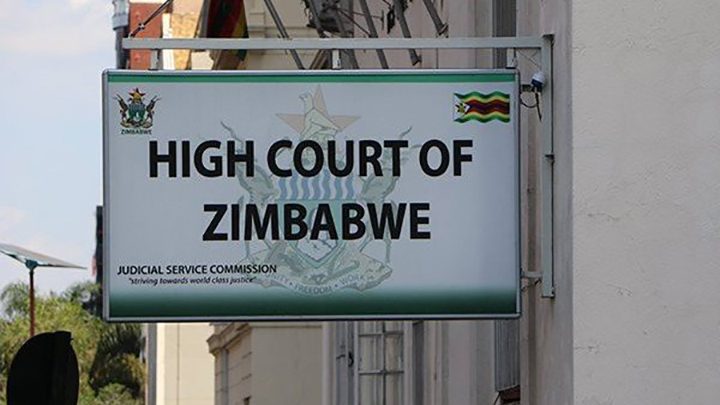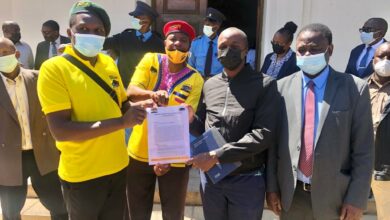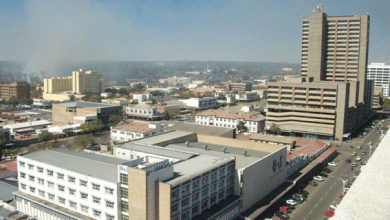Kasukuwere ruling could affect voters based in the diaspora, legal experts warn

Legal experts have asked the High Court to clarify its ruling barring Saviour Kasukuwere from contesting as a presidential candidate because he has been away from Zimbabwe for at least 18 months, warning that it may also apply to Zimbabweans living outside the country.
On July 12, 2023, the High Court issued an order rescinding Kasukuwere’s presidential nomination in the August 23 elections after Lovedale Mangwana, a Zanu PF supporter, argued Kasukuwere is not “ordinarily resident” in Zimbabwe as defined by Section 91(c) of Zimbabwe’s constitution.
Mangwana said Kasukuwere had been absent from his constituency for more than 18 months and was no longer a registered voter according to Section 23(3) of the Electoral Act.
Although Kasukuwere opposed Mangwana’s application on merits, the High Court granted Mangwana’s application, ruling the nomination court’s decision to accept his nomination papers violated Section 91(1) of the Constitution as well as the applicant’s constitutional rights under Sections 56(1) and 67(2)(a) and (3)(a).
However, legal experts have warned that the ruling could have far-reaching consequences for Zimbabweans in the diaspora who wish to vote.
“The High Court judgement is seriously erroneous because we have seen quite a few people contesting elections in Zimbabwe whilst they are not ordinarily or they’ve been out of the country for quite some time. It would actually call upon a decision that needs to explain what is ordinarily resident and when somebody is disqualified from being a participant in elections,” said lawyer Dr Vusumuzi Sibanda.
Dr Sibanda, based in South Africa as leader of the African Diaspora Global Network, said under the Electoral Act, anyone who is a registered voter and is Zimbabwean can definitely run for office.
“I’m not sure what the High Court is on here but it has to go further to define what is ‘ordinarily resident’ because it has inherent jurisdiction as well to interpret the law,” said the lawyer.
“Because if someone is not residing in another country permanently but is on a visitor’s visa, can they be regarded as somebody that is temporarily resident in that country when they are a visitor to the extent that they are excluded from participating in their home country’s politics? That is an exclusionary view to some extent.”
Dr Sibanda stated in certain circumstances Kasukuwere could be considered a resident of South Africa but not for electoral purposes.
“This is a very serious matter to consider Kasukuwere not to be a resident of Zimbabwe. This is a very special ruling that needs to be looked at. It tends to exclude further people that are in the diaspora from participating in the politics and elections in their home country for the mere fact that they are working outside the country. It would be quite regrettable if indeed the ruling stands,” he remarked.
Dr Sibanda said the law should be understood in context in order to understand what the purpose was and what it truly meant
“ In this case, we don’t know what ordinarily resident means or where it comes from,” he said, adding that if the Supreme Court, where Kasukuwere appealed to, maintains the High Court judgment, it would “mean ideally that people in the diaspora, who are working and have not visited their country in the last 12 months or 24 months may be excluded from voting.”
Dr Sibanda added the ruling would be “a very dangerous precedent and unacceptable in the sense that it’s going to be quite exclusionary and dangerous for politics.”
“It would mean only people residing in Zimbabwe, I’m not sure on a full time basis or without visiting other countries or temporarily going out, should vote. That is exactly what this interpretation would mean. By excluding Kasukuwere on that basis it must also follow that voters must be excluded and this cannot be accepted.”
Veritas, an organisation that provides law analysis, specified that while Section 23(3) of the Electoral Act stated voters “shall not be entitled” to have their names retained on the voters’ roll if they had been absent for 18 months or more, they did not automatically cease to be registered because there are procedures laid out in Sections 27 and 28 of the Electoral Act to follow before removing their names
Section 27 says voter registration may remove a voter’s name, but only after the Zimbabwe Electoral Commission (ZEC) sends the voter a written notice and giving the voter an opportunity to appeal to a designated magistrate and, if dissatisfied by the magistrate’s ruling, to the Electoral Court.
Section 28, a voter may object to the retention of a person’s name on a roll in which the voter is registered, and the voter registration officer may remove the person’s name, but again only after the person has been notified and given an opportunity to appeal to a designated magistrate.
The Electoral Act does not give the High Court or the Electoral Court power to remove a person’s name from a roll unless these procedures have been followed.






